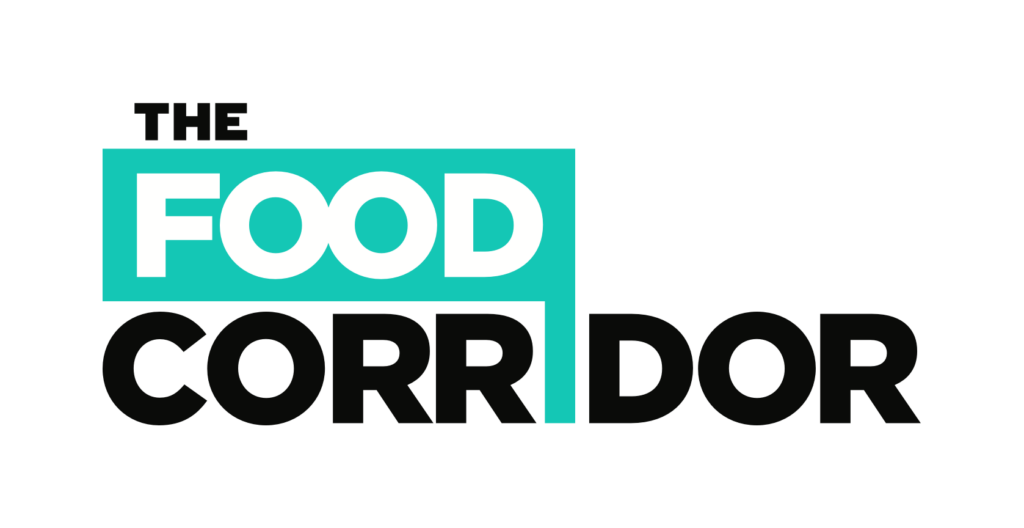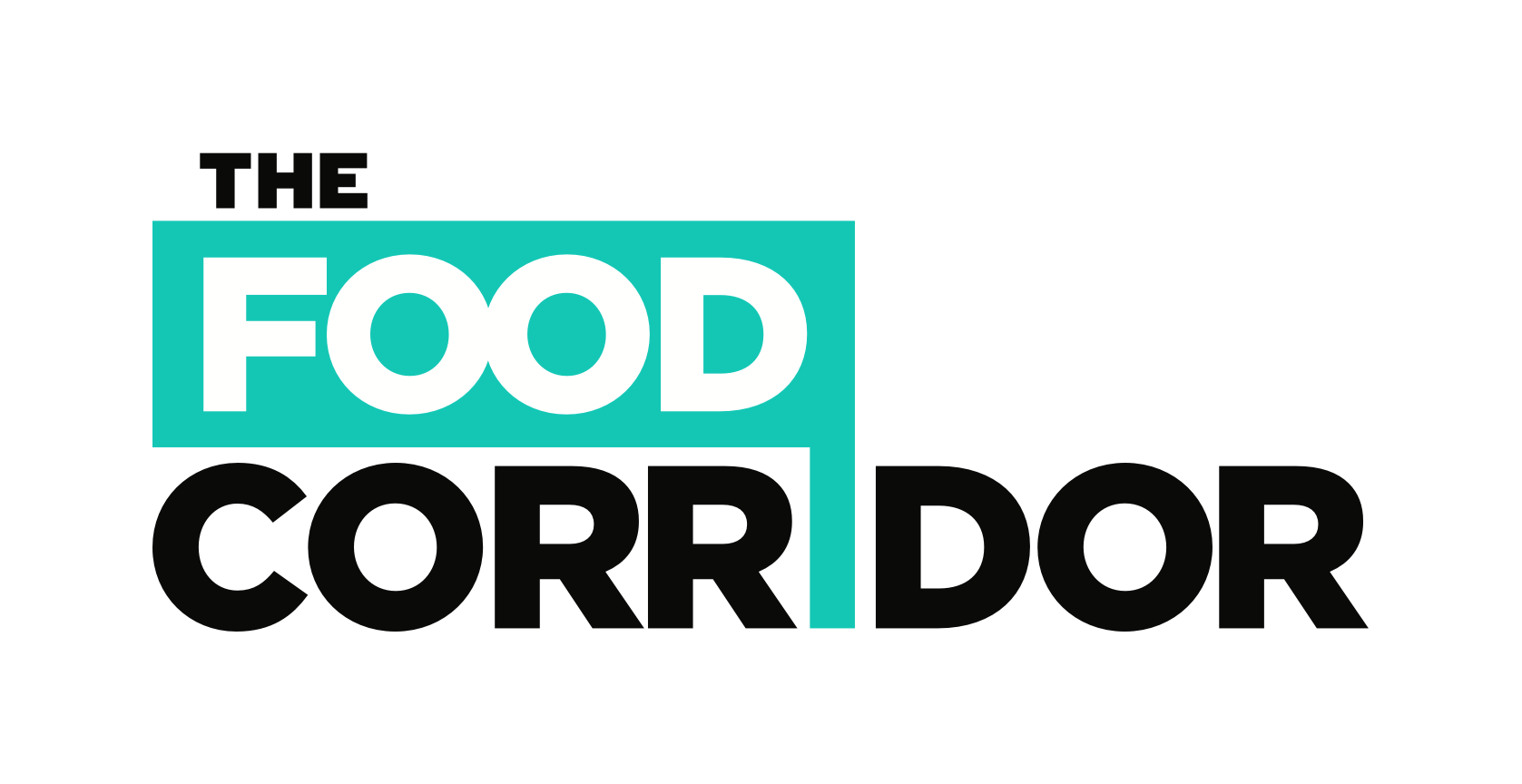Shared Kitchen Resources
NEW! The Essential Guide for Shared Kitchen Operators - Shared Kitchen Toolkit
Get the ultimate resource for launching, managing, and optimizing a shared-use kitchen. The Shared Kitchen Toolkit is a 359-page, 18-chapter guide built from two years of industry research, case studies, and expert insights. Designed for kitchen operators, consultants, and food business incubators, this toolkit provides best practices, operational strategies, and real-world solutions to help you succeed. Learn more.
Available for free on The Food Corridor website or as a digital download for an introductory price of $99.
Shared Kitchen Toolkit (2nd Edition)
PDF Download Toolkit from The Food Corridor
NEW! Shared Kitchen Operator Survey - Industry Insights Report
Stay ahead of the curve with the most comprehensive and up-to-date resource for shared-use kitchen operators, consultants, and entrepreneurs. The Shared Kitchen Insights Report 2025 delivers actionable data, emerging trends, and expert analysis tailored to empower decision-makers in this dynamic sector. Learn more.
Invest in data-driven success for only $239.
Shared Kitchen Operator Survey Industry Insights
Report from The Food Corridor
Prep & Prosper Shared Kitchen Workbook
Turn strategy into action with the Shared Kitchen Business Workbook, the ultimate hands-on guide for kitchen operators, consultants, and food business incubators. Packed with interactive exercises, planning templates, and expert insights, this workbook helps you build a sustainable, profitable shared kitchen operation. Whether you’re launching, expanding, or optimizing your space, this resource provides step-by-step guidance to streamline operations, maximize revenue, and support your community of food entrepreneurs. Learn more.
Invest in your kitchen’s success for $349.
The Food Corridor Prep & Prosper Shared Kitchen Workbook
Please enter your details below
Shared Kitchen Operations Manual
Skip the trial and error with the Shared Kitchen Operations Manual, a comprehensive, ready-to-use resource designed to help you run a smooth, compliant, and profitable kitchen. Built from industry best practices, this manual includes essential policies, procedures, agreements, and checklists to streamline operations and protect your business. Perfect for new and existing kitchen operators, it provides a proven framework to save you time, reduce risk, and avoid costly mistakes—saving you thousands in consulting fees. Learn more.
Invest in a turnkey solution for $1,499.
Shared Kitchen Blog
The Food Corridor Blog is your go-to resource for shared kitchen operators, food entrepreneurs, and industry professionals. Stay informed with expert insights, best practices, and real-world success stories to help you launch, manage, and grow your shared-use kitchen. From industry trends and funding opportunities to kitchen management strategies and pricing models, we provide actionable advice tailored to your needs.
We also share exciting updates on product releases, new features, and upcoming events like workshops, summits, and meetups. Whether you’re looking for operational guidance, community connections, or the latest news in the shared kitchen industry, our blog keeps you ahead of the curve.
Kitchen Connect Newsletter
Join our Shared Kitchen Connect Newsletter and get the latest insights, best practices, and industry updates delivered straight to your inbox. Whether you’re looking for strategies to run an efficient kitchen, networking opportunities, pricing models, or resources to grow your business, our newsletter is designed for shared kitchen operators, food entrepreneurs, and industry professionals.
Stay ahead with expert tips, upcoming events, funding opportunities, success stories, and insights from other operators who understand the challenges and rewards of running a shared kitchen. Don’t miss out—join the conversation and be part of a thriving community shaping the future of shared-use kitchens!
Attract More Tenants
Struggling to find new members for your space? The Kitchen Door is where food businesses go to search for available kitchens. By claiming your free listing, you make it easy for food entrepreneurs to discover your kitchen, learn about your amenities, and reach out directly. Kitchens with a complete profile double their chances of being contacted—so don’t miss out on potential renters!
Claim your listing today and start attracting food businesses!
Join the Shared Kitchen Community
Running a shared kitchen comes with unique challenges—but you don’t have to do it alone. The NICK (Network for Incubator & Commissary Kitchens) is a free, private group where kitchen professionals connect to exchange best practices, troubleshoot challenges, share frustrations, and support each other. Whether you need advice, encouragement, or fresh ideas, this community is your go-to resource for real-time insights from those who understand the industry best.
Join The NICK today and be part of the conversation!
Our Other Publications
This report provides exclusive insights into the latest market trends for shared-use kitchens, summarizing the available proprietary information from The Food Corridor and The Kitchen Door. The report includes the most comprehensive market insights available, pulling data from March 2019 to March 2020.
The Food Corridor and a Steering Committee of 10 NICK members explored the national policy landscape for shared-use kitchens. They identified the best practices and policies to support the industry in navigating local health departments, conflicting state and county policy, and inadequate licensing options.
This report provides a snapshot of today’s shared food facility industry, presents a view into the industry’s future trajectory, and highlights best practices and recommendations for improving outcomes for entrepreneurs and operators. In addition to sharing data and recommendations, this report seeks to put shared kitchens into greater context as operations with the potential to play an outsized role in expanding the inclusive economy – bringing entrepreneurs that face significant barriers to entry into the fold of supportive business ecosystems.
Business Development
A community for food artisans and entrepreneurs with a mission of providing up-to-date industry news as well as the regulatory, business, and strategic information needed to successfully compete in today’s marketplace.
Create, connect, support, and share the extraordinary experience of specialty food with the world. Join for access to exclusive membership benefits.
Enables and empowers entrepreneurial leaders to design, deliver and lead transformative innovations that address the world’s most pressing food challenges—and its greatest business opportunities.
Helps you develop and commercialize high-value products and businesses in the food, agricultural and natural resource sectors.
A Project of the Northside Planning Council, this is a template for sections to include in a shared-use kitchen business plan.
Education
Their five undergraduate schools award Bachelor’s degrees in food business management, culinary science, and applied food studies; associate degrees in either culinary arts or baking and pastry arts; and an accelerated culinary arts certificate.
Enables and empowers entrepreneurial leaders to design, deliver and lead transformative innovations that address the world’s most pressing food challenges—and its greatest business opportunities.
For food retailers, wholesalers and suppliers of all types and sizes, FMI leads the way in providing comprehensive programs, resources, guidance, advocacy and services for the food and grocery retail industry.
Information for anyone interested in undertaking an online cooking course to improve their basic cooking abilities, through gaining full-on professional kitchen experience.
Funding, Accelerators, & Incubators
AngelCalc models the conversion of safes and/or convertible notes during an equity financing. It uses techniques similar to those used by Microsoft Excel to make its calculations.
Accelerator that builds a networking and mentoring platform to enable the best entrepreneurs to revolutionize the way we produce and distribute food globally. Accepts both for- and non-profit business models.
Funding sources for food-related businesses.
USDA resources to support local and regional food systems.
General Resources
Very comprehensive toolkit for rural food business development, including: commercial and shared-use kitchens, value-add processing, distribution, business incubation, food safety, networks and other tools.
The site of record and community for the food tech and innovation sector. They give innovators the tech and business insights, connections, job postings, and skills you need to transform the food industry.
Kitchen Operations & Best Practices
Provides a comprehensive set of tools, technical support, and verification system to assist institutions in meeting their Program goals and commitments.
Started by Northern Kentucky Incubator Kitchen’s Rachel Grubbs de Rochers, this podcast series covers “intimate conversations for the foodpreneur community”.
Guidance for Communities and Facility Operators. This is a free guide for existing kitchens in community-serving facilities, such as religious buildings and community centers, to provide kitchen access to food entrepreneurs. It provides practical steps for establishing a rental program, profiles Kitchen Connect programs, and highlights ways stakeholders can support kitchen access. It was developed by Fruition Planning & Management and Purdue Extension Services and made possible by a grant from the USDA’s Sustainable Agriculture Research and Education (SARE) program, North Central Region.
Marketing & Distribution
Post your shared kitchen or find licensed, commercial kitchens for rent near you!
Put CPG products in front of thousands of retail buyers – instantly.
Create FDA-compliant nutrition fact labels, recipe costing, and inventory management.
For food retailers, wholesalers and suppliers of all types and sizes, FMI leads the way in providing comprehensive programs, resources, guidance, advocacy and services for the food and grocery retail industry.
The Market Research for Market Readiness (MKTRD) Protocol is based on consumer testing and designed to help entrepreneurial food makers and value-added farmers evaluate the products they are developing for market. This toolkit includes a manual, an Excel workbook, and several training videos
Integrity Labeling prepares Nutrition Facts, Ingredient Statements, Nutrient Content Claims and Allergen Statements that are FDA Compliant and design-ready to insert into your label design, in just 3-5 business days.
Safety & Sanitation
Enables users to search NACCHO’s Local Health Department (LHD) Directory by zip code.
A process authority evaluates the thermal process for food with expert knowledge of thermal process, hermetically sealed containers, and food microbiology. Registry available by state.
A food and beverage safety training and certificate program administered by the National Restaurant Association. The program is accredited by ANSI and the Conference for Food Protection. Sanitation certification is required as a basic credential for anyone producing food for sale.
All wholesale manufacturers, re-packers and warehouses must comply with the FDA’s Code of Federal Regulations (CFR), Title 21, section 110.
Open source food safety plans, free and unrestricted public viewing, commenting, downloading, sharing, revision, and use.
Shared-Use Kitchens
A guide to starting shared‐use kitchens as an affordable venue for new and existing value‐added food production entrepreneurs, farmers and caterers. Published September 2014 by the Leopold Center for Sustainable Agriculture, in collaboration with Iowa State University Extension and Outreach.
Econsult Solutions, Inc. (ESI), along with American Communities Trust and Urbane Development conducted a survey assessing the landscape of U.S. kitchen incubators/accelerators. Published March 2016.
March 2016
Have a resource to share? Need a resource that isn’t here? Let us know: [email protected]!

